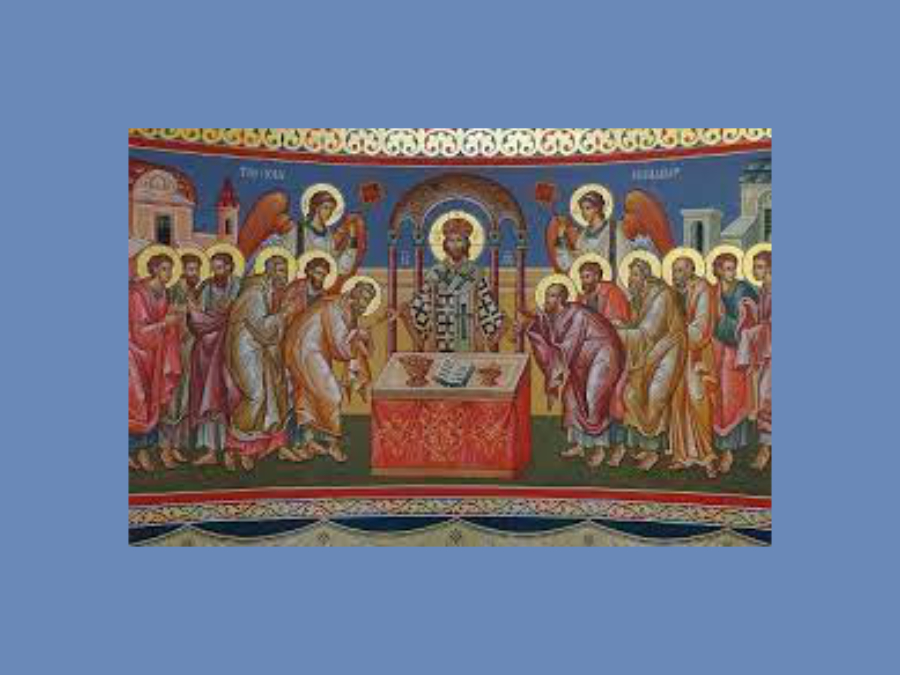
A Response to the ‘Myriad Plan’ from Lorraine Cavanagh
July 11, 2021
Billionaires in space: progress or crime?
July 23, 2021This is my second post about the controversial 1921 conference ‘Christ and the Creeds’, hosted by Modern Church’s predecessors. We’re celebrating with a day conference on 11th September, and you can book here. This post focuses on creeds.
Like the debate about Christ, the main points made then could be made equally well today. I shall first summarise the main points of the 1921 speeches on the creeds. I shall then explain why I think they still matter, using the Church of England’s Vision and Strategy programme as a point of comparison.
At the 1921 conference there was much consensus, though with variations. To belong to a church at all implies that we have something in common with the other people there, and it should be possible to state what that is. However, it should be brief and basic, and only recited on occasions when it is especially appropriate. The Church’s inherited creeds say too much, and we hear them too often.
They have outdated philosophies. The most common criticism was that they presuppose ways of understanding the world that we no longer have. W R Sorley argued:
Neither individual theologians nor the Councils and Assemblies that have defined doctrine have been free from the intellectual influences of their day. First Platonism and then Aristotelianism gave its colour to Church doctrine; and, had a new formulary been produced in England twenty or thirty years ago, it is safe to say that it would have been an amalgam of the ideas of Hegel and Darwin. Fortunately that danger has been averted, and the Christian is not required to believe in Hegel or in Darwin. But should Plato or Aristotle have any greater authority over his belief?
It is the conscientious who find creeds difficult. To Cyril Emmet,
This problem presses most hardly on the sensitive conscience and particularly on the conscience of many of the best men who are contemplating entering the ministry.
The historical claims in the creeds are not above question. Harold Anson complained that they exclude people who doubt the Virgin Birth but affirm those
who could imagine our Lord saying to any man who wished to follow Him, ‘Let me first hear what you believe about my mother.’
As things stand, he adds,
No one would feel that the country was safer if every cabinet minister had to recite the creed as a profession of faith before entering office, and no one thinks that children are any safer because they have had godparents who have given assent to the questions propounded to them in the baptismal service.
There is an implication of finality, as though there is no more to learn. To T H Bindley,
Reliance upon the possession of a formulated Creed tends to make people think that they have arrived at a finality in all Truth which simply has to be handed on. This attitude towards the Truth is calculated to blunt that alertness and receptivity which ought to characterize the healthy spiritual faculty.
All this puts the young off. To Douglas White,
The young men and women to-day are earnestly groping for the light; but the truths from which they start are just those which the Church seems to grudge, if not to withstand… As a whole, the Church fears new truth rather than loves it.
Should creeds exclude? Harold Anson presented a distinctive argument:
A creed ought to repel people: it ought to exclude.
But it is very important that we should exclude the right, and not the wrong, people, and this is the vice of our present creeds.
He quotes the Unitarian James Martineau, who asked:
How can you Anglicans sleep at nights when for all you know your baker may be confounding the Persons, and your butcher may divide the Substance?
Anson replies:
As a matter of fact the baker and butcher, if their fancy led them to sing tenor and bass in the choir, would cheerfully chant the whole Confession of Faith without one qualm of conscience, while we should be excluding all those who feel that the philosophical statement of a creed is in itself so difficult that it never ought to be made a test of fellowship, or of office… Still you… want a creed which… will make the butcher and the baker tremble, the butcher when he sells bad meat, and the baker when he overcharges for his bread.
In general the 1921 speakers wanted a brief statement of faith with fewer details, only used occasionally, but with stronger moral direction. Personally I think this is about right.
Today
How does this compare with the state of the Church today? Since it has only just obliged us with its controversial Vision and Strategy programme this is what I shall use as a point of comparison. This initiative, the ‘Myriad’, is summarised in a Church Times article and has proved controversial. Some of the many criticisms can be found on the Modern Church blog.
It is a strategy paper, not a discussion of creeds, so we shouldn’t expect it to address the same questions. Nevertheless it reveals the dominant concerns of church leaders today, just as the responses to the 1921 conference revealed the concerns they had then. To this extent I think it is fair to compare what bothers people now with what bothered them then.
Then, the conference speakers wanted to encourage honest questioning, and therefore wanted to minimise credal statements to allow diversity of thought. The horrified responses came, generally, from the ecclesiastical establishment. They were so outraged that they set up a doctrine commission to pass judgement.
Today, the proposals for change are coming from the ecclesiastical establishment itself. The horrified responses are coming from more traditional churchpeople fearing that what they value will be harmed. The impression has been received – for example from Canon McGinley’s reference to ‘passengers’ – that people too elderly or busy to involve themselves in evangelistic activity are undervalued. There are also indications that the content of Christian worship and belief, far from being a matter of controversy, is of no interest to those determined to maximise the number of new worshipping communities.
The defenders of the proposals can only be expected to deny any such intention. But it is difficult to see how their hopes can be realised without this being the direction of travel.
The contrast
100 years ago church leaders were determined to maintain the parameters of acceptable worship and belief. Modernists wanted to reduce the restrictions and encourage free enquiry. Today church leaders, in their hurry to establish new worshipping communities, appear to have lost interest in the parameters of worship. It is their more traditionally-minded opponents who object that there is no point in multiplying churches unless they are going to do Christian work and express Christian faith in God.
My own view is that what we believe about God matters, and how we relate to God matters. Worship – how many churches we need, what kinds of worship we should have, whether we recite creeds – should not be decided on managerial principles. It should be derived from what we believe about God and how we think we should relate to God.
I would like to see church leaders spend less time on management plans, and instead talking to the nation about God, what kind of God they believe in, and what difference it makes.
To this extent, the speakers at that 1921 Conference did a good job, and today’s Church could learn a thing or two from them.




